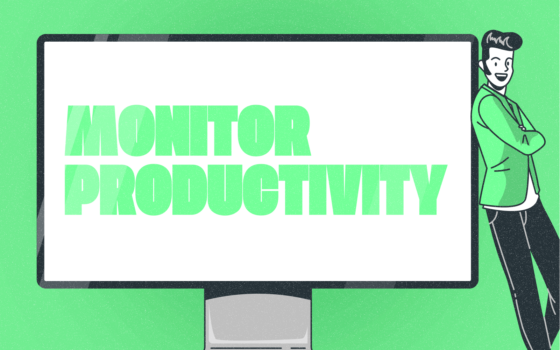Professional in Human Resources (PHR)
Understanding the Professional in Human Resources (PHR) Certification
In the ever-evolving landscape of human resources, professionals are constantly seeking ways to enhance their skills, knowledge, and credibility. One of the most prestigious and recognized certifications in the field is the Professional in Human Resources (PHR) certification. This comprehensive credential is designed to validate an HR professional's expertise in the technical and operational aspects of HR management.
The PHR certification is offered by the HR Certification Institute (HRCI), a globally recognized organization that has been setting the standard for HR excellence for over 45 years. HRCI is committed to developing and administering certifications that reflect the most current and relevant practices in the HR profession.
Who Should Pursue the PHR Certification?
The PHR certification is ideal for HR professionals who are in the early to mid-stages of their careers and are looking to solidify their knowledge and skills in HR operations. It is particularly suited for:
- HR generalists who handle a wide range of HR functions
- HR specialists looking to broaden their understanding of HR operations
- HR managers seeking to enhance their credibility and advance their careers
- Professionals transitioning into HR from other fields
To be eligible for the PHR exam, candidates must meet certain education and experience requirements. Typically, this includes a combination of professional HR experience and a minimum level of education. The specific requirements may vary, so it's essential to check the most current eligibility criteria on the HRCI website.
Core Competencies Covered by the PHR Certification
The PHR certification exam covers a broad range of HR topics, reflecting the diverse responsibilities of HR professionals. The exam is designed to test a candidate's knowledge and skills in several key areas:
1. Business Management and Strategy
This domain focuses on aligning HR practices with organizational objectives. It covers topics such as:
- Strategic planning and implementation
- Organizational development
- Change management
- HR metrics and analytics
2. Workforce Planning and Employment
This area encompasses the entire employee lifecycle, including:
- Recruitment and selection processes
- Onboarding and orientation
- Succession planning
- Employee engagement and retention strategies
3. Human Resource Development
This domain covers the various aspects of employee growth and development, such as:
- Training and development programs
- Performance management systems
- Career planning and development
- Organizational learning initiatives
4. Compensation and Benefits
This area focuses on designing and managing compensation and benefits programs, including:
- Salary structures and pay practices
- Incentive programs
- Benefits administration
- Retirement plans
5. Employee and Labor Relations
This domain covers the management of employee relationships and labor issues, including:
- Employee communications
- Conflict resolution
- Labor union relations
- Collective bargaining processes
6. Risk Management
This area focuses on maintaining a safe and compliant workplace, covering topics such as:
- Occupational health and safety
- Workers' compensation
- Workplace security
- Business continuity planning
The PHR Exam: What to Expect
The PHR exam is a computer-based test consisting of 175 multiple-choice questions. Of these, 150 are scored, while 25 are pretest questions used for research purposes and do not count towards the final score. Candidates have four hours to complete the exam.
The exam questions are designed to test not only theoretical knowledge but also practical application of HR principles. Many questions present real-world scenarios that HR professionals might encounter in their daily work, requiring candidates to apply their knowledge to solve problems or make decisions.
It's important to note that the exam content is regularly updated to reflect current HR practices and legal requirements. This ensures that PHR-certified professionals are equipped with the most up-to-date knowledge in the field.
Preparing for the PHR Exam
Preparing for the PHR exam requires dedication and a structured approach. Here are some strategies that can help candidates succeed:
1. Self-Assessment
Begin by assessing your current knowledge and identifying areas where you need to focus your study efforts. The HRCI provides a content outline that can serve as a guide for this self-assessment.
2. Study Materials
Invest in quality study materials. This may include textbooks, online courses, practice exams, and study guides specifically designed for the PHR exam. The HRCI offers official preparation materials, which can be particularly helpful.
3. Study Groups
Consider joining or forming a study group with other HR professionals preparing for the PHR exam. This can provide motivation, support, and opportunities to discuss complex topics.
4. Practice Exams
Take multiple practice exams to familiarize yourself with the exam format and identify areas where you need additional study. Practice exams can also help you develop effective time management strategies for the actual exam.
5. Continuous Learning
Stay updated on current HR trends, legal changes, and best practices. Reading HR publications, attending webinars, and participating in professional development activities can enhance your understanding of the field.
Benefits of Obtaining the PHR Certification
Earning the PHR certification can provide numerous benefits for HR professionals:
1. Enhanced Credibility
The PHR certification is widely recognized in the HR industry and demonstrates a commitment to professional excellence. It can enhance your credibility with colleagues, management, and clients.
2. Career Advancement
Many employers prefer or require PHR certification for certain HR positions. Having this credential can open up new career opportunities and potentially lead to higher salaries.
3. Expanded Knowledge
The process of preparing for the PHR exam can significantly broaden and deepen your understanding of HR principles and practices, making you a more effective HR professional.
4. Networking Opportunities
Becoming PHR certified connects you with a community of like-minded professionals. This can lead to valuable networking opportunities and the chance to share best practices with peers.
5. Commitment to Ongoing Learning
To maintain PHR certification, professionals must earn recertification credits through continuing education. This requirement ensures that PHR-certified professionals stay current with evolving HR practices and trends.
Maintaining PHR Certification
Once you've earned your PHR certification, it's important to maintain it through recertification. The recertification process ensures that PHR-certified professionals continue to expand their knowledge and stay current with changes in the HR field.
Recertification is required every three years and can be achieved through a combination of professional development activities, including:
- Continuing education courses
- Attending conferences and seminars
- Publishing articles or research
- Teaching HR-related courses
- Volunteering for HR-related organizations
The specific number of recertification credits required may vary, so it's important to check the current requirements on the HRCI website.
The Future of PHR Certification
As the HR profession continues to evolve, so too does the PHR certification. The HRCI regularly reviews and updates the exam content to ensure it remains relevant and aligned with current HR practices. Some trends that are likely to shape the future of PHR certification include:
1. Increased Focus on Technology
As HR technologies continue to advance, future PHR exams may place greater emphasis on topics such as HR information systems, data analytics, and artificial intelligence in HR.
2. Global Perspective
With businesses becoming increasingly global, the PHR certification may incorporate more content related to international HR practices and cross-cultural management.
3. Emphasis on Strategic HR
As HR continues to play a more strategic role in organizations, the PHR certification may place greater emphasis on topics such as workforce planning, talent management, and HR's role in driving business strategy.
4. Focus on Employee Experience
With the growing importance of employee experience in attracting and retaining talent, future PHR exams may include more content related to employee engagement, workplace culture, and work-life balance.
Conclusion
The Professional in Human Resources (PHR) certification represents a significant milestone in an HR professional's career. It demonstrates a commitment to excellence, a broad understanding of HR principles and practices, and the ability to apply this knowledge in real-world situations.
While earning the PHR certification requires significant effort and dedication, the benefits it provides in terms of career advancement, professional credibility, and personal growth make it a worthwhile pursuit for many HR professionals. As the HR field continues to evolve, the PHR certification will undoubtedly adapt to ensure it remains a relevant and valuable credential for HR professionals worldwide.
Whether you're just starting your HR career or looking to take the next step in your professional development, the PHR certification offers a structured path to enhance your skills, broaden your knowledge, and demonstrate your expertise in the field of human resources.


